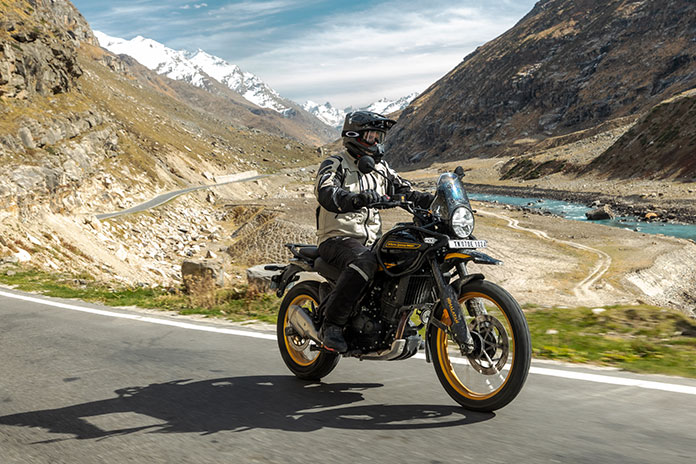
You can drink a Tecate in Tecate, you can take a bath in Bath, and you can wear a fez in Fez. One of most intriguing eponymous pairings a moto-loving person can imagine is riding a Royal Enfield Himalayan in the Himalayas. The popular adventure bike has gotten a complete makeover for 2024. The question is: Can the new version bring the Himalayan into the technological present and still retain the character and charisma of the original?
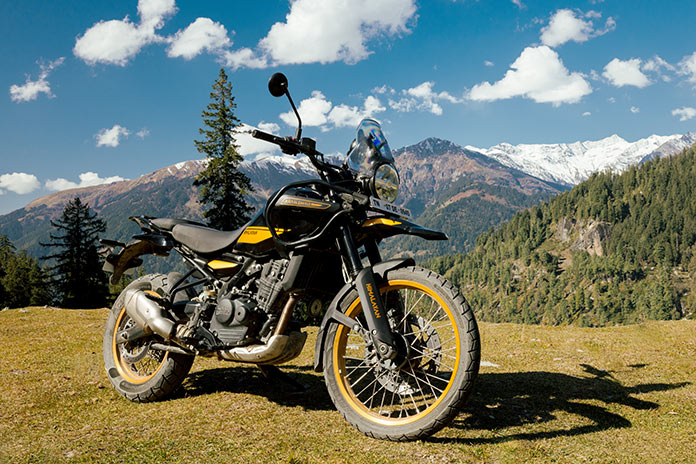
Royal Enfield, the oldest global motorcycle brand in continuous production, launched the Himalayan in 2016, but we didn’t get our first ride on one until 2018.
Powered by an air-cooled 411cc Single, it has been a favorite of riders seeking a simple, versatile, and affordable motorcycle. Royal Enfield is a decidedly and intentionally retro manufacturer, so the company was meticulous, even plodding, in its development of an upgraded Himalayan. But the wait is over.
Related: BMW G 310 GS vs. Kawasaki Versys-X 300 vs. Royal Enfield Himalayan Comparison Review
Royal Enfield Himalayan: What’s New
It is not hyperbole to say that everything about the 2024 Himalayan is new. Starting at the heart, the air-cooled 411cc Single has been replaced with a liquid-cooled 452cc Single with DOHC and 4 valves. The claimed 39.5 hp (up from a barely adequate 24) is reached at 8,000 rpm, and 29.5 lb-ft of torque (up from 24) arrives at 5,500 rpm. The new Himalayan’s entire power curve surpasses that of its predecessor, and the engine revs out farther.
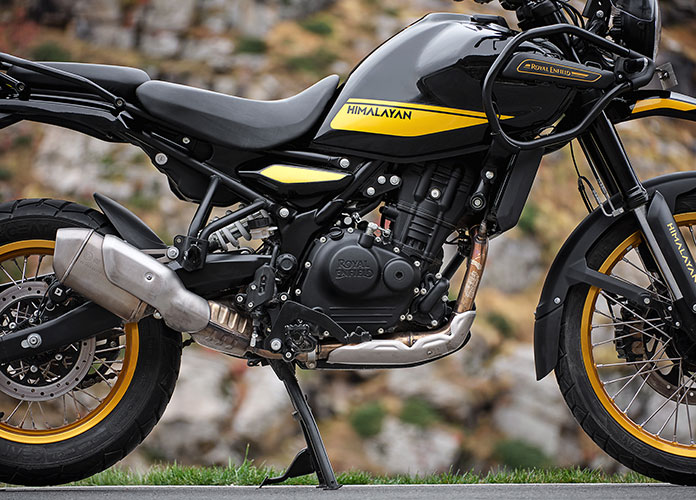
The forward-canted cylinder is a visual and technological departure from the previous model’s vertical air-cooled powerplant. The engine is now a stressed member of the frame, and a new gearbox has six speeds instead of five and is part of the unit-construction, semi-dry sump engine case. Located under the fuel tank is a new airbox that provides a pleasing intake growl. Exhaust gasses run through an under-frame catalytic converter that also muffles sound, which allows for an attractively short silencer.
Related: 2023 Royal Enfield Super Meteor 650 Review | First Ride
Suspension and braking changes are just as substantial as those to the engine. The previous conventional 41mm fork has been replaced with a Showa cartridge-type inverted fork with 43mm tubes, and the rear shock is now a linkage type with adjustable preload. Suspension travel is 7.9 inches front and rear, keeping front travel the same but bumping up from 7.1 inches of previous rear travel.
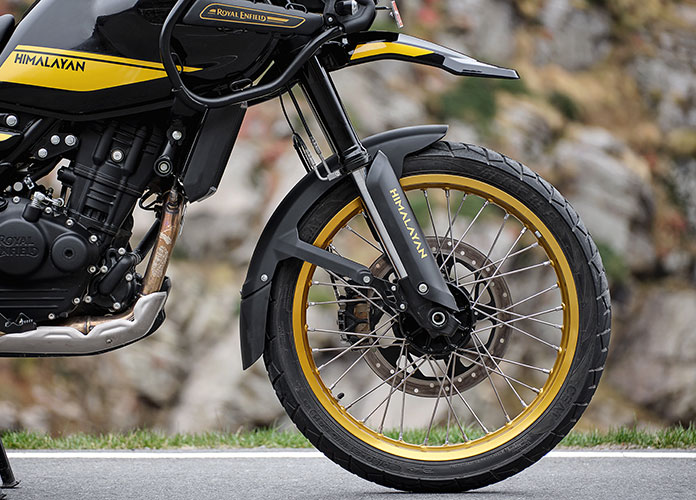
As before, the Himalayan rolls on spoked wheels with tube-type rims, 21-inch front (90/90-21) and 17-inch rear (140/80-17). Royal Enfield reps said certain up-spec models will be offered with tubeless spoked wheels, but details have not yet been finalized. There are still single disc brakes front and rear, but the 2-piston front caliper now squeezes a 320mm disc (up from 300) and the 1-piston rear caliper squeezes a 270mm disc (up from 240). ABS is standard and can be disabled at the rear wheel for off-road duty.
Front and center, the Himalayan has a new 4-inch TFT display that combines a multitude of innovative and modern features in a retro-style round gauge. It offers Bluetooth connectivity to a rider’s smartphone for music and navigation. The latter is powered by Google Maps and is the first of its kind for the display type and shape. On-the-fly toggling between screens is actuated by an easily accessible hand control. The Himalayan features LED lighting all around, and the tail lighting is innovatively integrated into both rear turnsignals. A USB-C port keeps a smartphone charged.
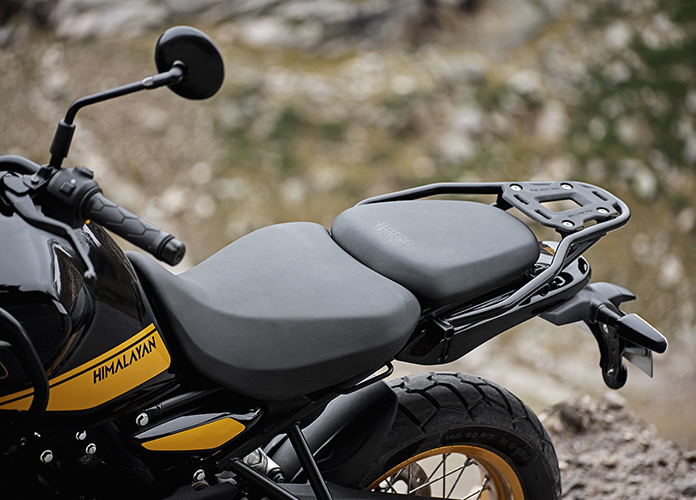
The overall aesthetic of the bike was crafted to retain core design elements of the original while projecting a more modern look. The midsection is narrower, and the bike has a lower center of gravity. There is an easily adjustable dual-height seat (32.5/33.3 inches; an optional low seat adjusts from 31.7 to 32.5 inches), and a beefier handlebar is adjustable fore and aft in two positions.
The new model’s wheelbase is just over 2 inches longer than the original at 59.5 inches, and ground clearance is right at 9 inches. The redesigned fuel tank holds 4.5 gallons (up from 4.0), and Royal Enfield claims a range of more than 280 miles, which translates to about 62 mpg. The Himalayan is available in five colors inspired by its namesake region: Hanle Black, Kamet White, Kaza Brown, Slate Poppy Blue, and Slate Himalayan Salt.
No adventure bike is complete without a few farkles, and the Himalayan accessory list includes handguards; a taller windscreen; touring mirrors; protectors for the engine, radiator, and headlight; aluminum panniers and top box; and a rally kit that includes a rally-style seat and tailsection and a higher aluminum exhaust can.
Related: 2023 Royal Enfield Hunter 350 Review | First Ride
Royal Enfield Himalayan: Riding Impressions
Before I get into the nitty gritty, you must understand that riding in northern India is like a schizophrenic dance. When traffic is light and the tarmac is intact, it is a sweeping and graceful waltz. The ballroom is stunning in the shadows of the towering Himalayas. At other times, the dance is a frenetic mosh pit of activity with the soundtrack of blaring horns. Colorfully adorned and bedazzled commercial trucks use the tarmac dance floor in any lane they choose. Small-displacement motorcycles and scooters weave and maneuver, carrying passengers and payloads in clear excess of their design limits. Cows wander and sometimes sleep in the road as if they are fully aware of their spiritual significance in Indian culture. The “dance floor” is a constantly changing platform that varies from intact to fractured to nonexistent with no warning at all. This is exactly the dance for which the new Himalayan is designed.
Related: An India Motorcycle Trip from Head to Toe
After a briefing on how to handle riding in the region, our test ride took us up into the mountains on a crisp late October morning. The Himalayan proved to be an easy bike to adjust to. The controls are user-friendly, the shifting is precise, and response from the new throttle-by-wire is smooth and controllable. Braking, while not exemplary, was predictable, and the ABS performed well. Predictability was particularly important as I negotiated the ever-changing conditions of the northern Indian roadways.
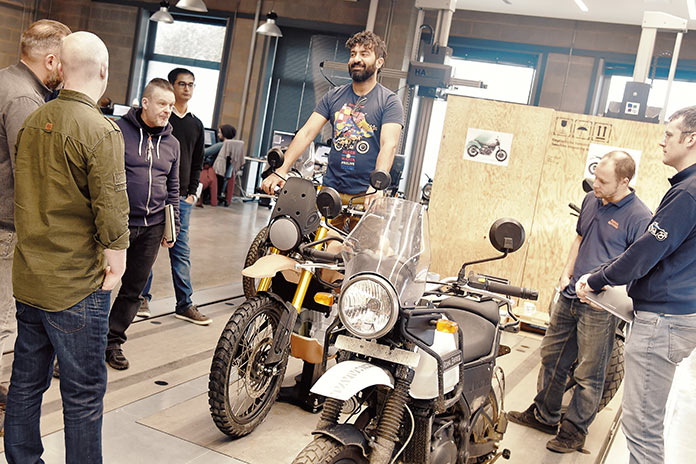
The work that Royal Enfield engineers put into the new model’s ergonomics is obvious. The seating position is natural and neutral with a comfortable reach to the bar, and there is ample leg room to the footpegs. What impressed me most about the new ergos is how comfortable the bike feels in a standing position. I’m 6-foot-3 with a 34-inch inseam, and some smaller bikes force me into a semi-crouch when standing. As the conditions constantly changed on our ride, it was easy to shift around on the bike and stand over its narrow midsection.
Climbing to more than 10,000 feet in elevation, it was crucial to keep the 40-hp Single in the appropriate gear. Exiting a corner in a rev range that was even slightly too low required quick downshifting to find acceleration. To that end, the new slip/assist clutch made gear changes nearly seamless. When in the right gear, the engine performed remarkably well. I wonder what kind of performance boost the engine would realize at sea level.
Gear Up
- Helmet: Alpinestars Supertech M10 Flood
- Jacket: Alpinestars Ardent 3-in-1
- Gloves: Alpinestars Bogota Drystar XF
- Pants: Rev’It!
- Boots: Alpinestars RT-7 Drystar Boot
The Himalayan is a very competent bike on pavement. The chassis is notably stiff in its new configuration with the engine as a stressed member. Cornering on the serpentine sections of Himalayan tarmac proved to be stable and confidence inspiring. I repeatedly dragged the pegs and felt comfortable doing so. Wind protection from the small screen was adequate, keeping some of the blast off my torso. However, I would opt for the accessory tall windscreen for touring.
On our way into the mountains, I got intermittent hints about how the bike would handle off-road. There were many sections where the ravages of the Himalayan environment had washed away the pavement, leaving dusty and rocky stretches. I often encountered these sections at high speeds, and the bike handled the changes in footing admirably. In the villages, the bike’s predictability was crucial as I negotiated that aforementioned dance – braking, weaving, and accelerating through the traffic frenzy.
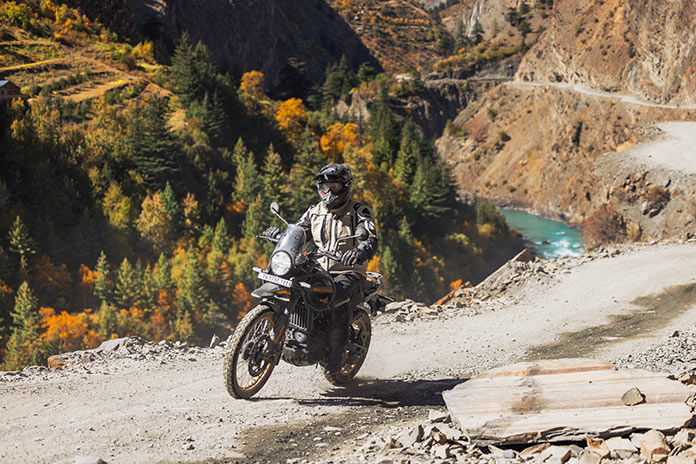
After several hours of riding into the mountains, we were given the opportunity to hit the dirt. The conditions offered up sandy and rocky sections as well as some heavily rutted inclines. The updated suspension, stout frame, and 21-inch front wheel negotiated these conditions well. The front suspension felt more sorted than the rear, but I bottomed out the rear shock only once. Cranking up the rear preload a bit would have helped. The off-road capability of the bike is enhanced by the overall light feel and relaxed ergos. It felt stable and planted in the dirt even on the road-biased tires.
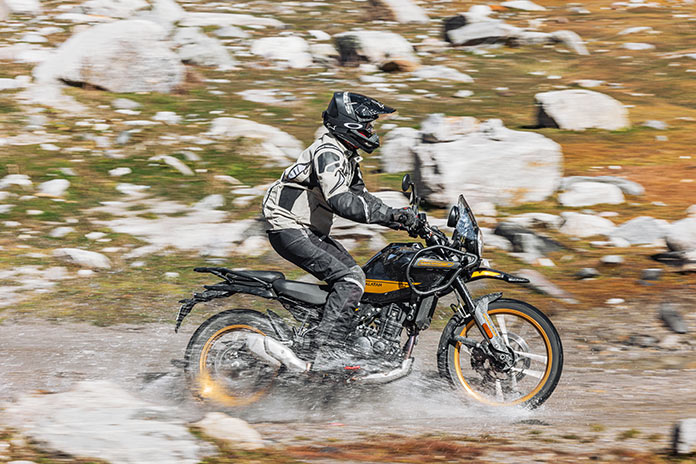
Later in the day, I had the chance to ride some icy declines and limited water sections. Again, the Himalayan was up to the task. I felt fully in control of the bike on the slick sections, and switching off rear ABS negated any unsettling freewheeling sensation from the rear brake. All in all, the new Himalayan handled everything admirably. The bike was stable at speed on the tarmac, predictable in the dirt, and controllable on dodgy surfaces. What else can you ask of a lightweight ADV?
If adventure bikes are the Swiss Army knives of the motorcycling world, then the light, versatile Himalayan resides comfortably in that pocket. The new model is a marked upgrade from its already popular predecessor. This is not a bike intended to wow your riding buddies with power numbers or cutting-edge technology. Rather, it’s a reliable, comfortable, competent all-around motorcycle available at a reasonable price (U.S. pricing is not yet available, but it shouldn’t be drastically higher than the $5,449 base price of the 2023 model). If the Himalayan can handle the extremity of the conditions in the region after which it is named, it should continue to be a popular choice worldwide.
The answer to the question posed earlier is a resounding “yes” – the new Himalayan brings the model into the present and still emits its fair share of character and charisma.
Check out more new/updated bikes in Rider’s 2024 Motorcycle Buyers Guide
2024 Royal Enfield Himalayan Specifications
- Base Price: N/A
- Website: RoyalEnfield.com
- Warranty: 3 yrs., unltd. miles w/ roadside assistance
- Engine Type: Liquid-cooled Single, DOHC w/ 4 valves
- Displacement: 452cc
- Bore x Stroke: 84 × 81.5mm
- Horsepower: 39.5 @ 8,000 rpm (factory claim)
- Torque: 29.5 lb-ft @ 5,500 rpm (factory claim)
- Transmission: 6-speed, cable-actuated slip/assist wet clutch
- Final Drive: Chain
- Wheelbase: 59.4 in.
- Rake/Trail: 26.5 degrees/5.0 in.
- Seat Height: 32.5/33.3 in.
- Wet Weight: 432 lb (factory claim w/ 90% fuel)
- Fuel Capacity: 4.5 gal.
- Fuel Consumption: 62 mpg (estimate)
- Range: 280+ miles (factory claim)

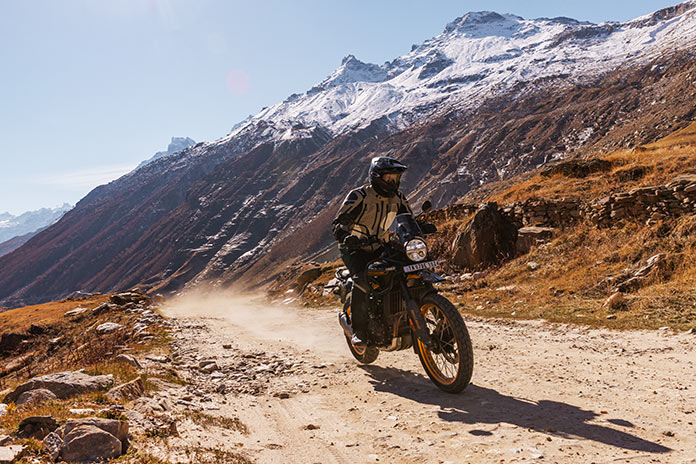
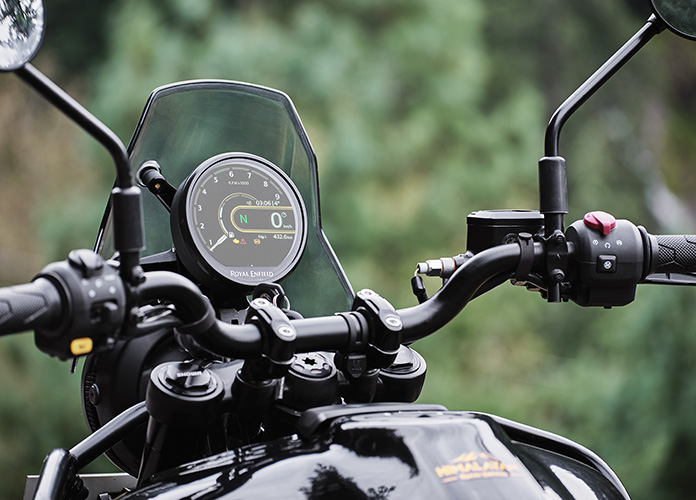
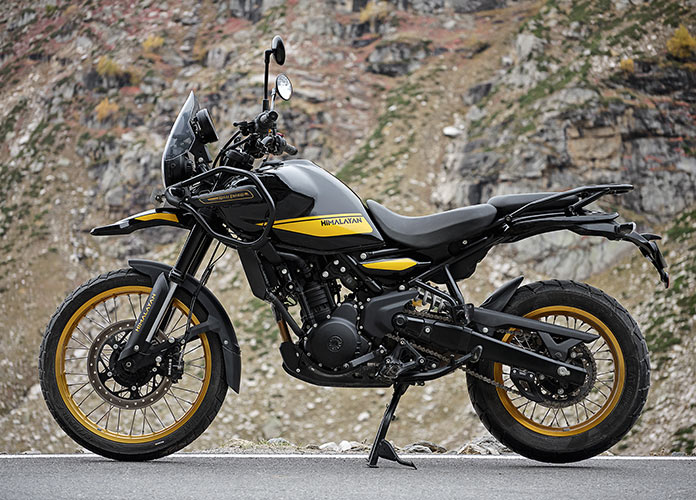
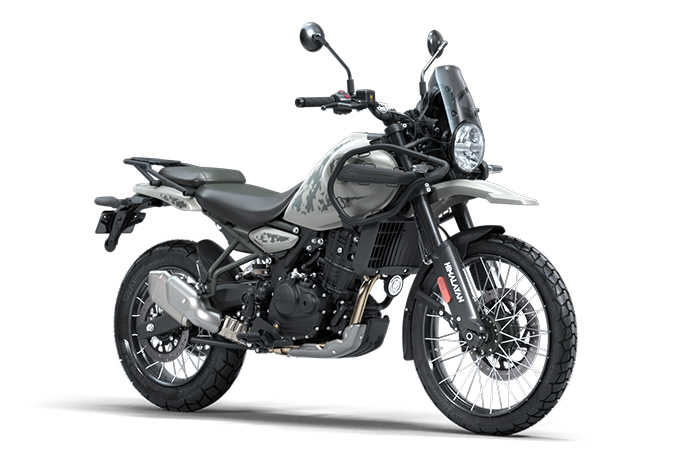
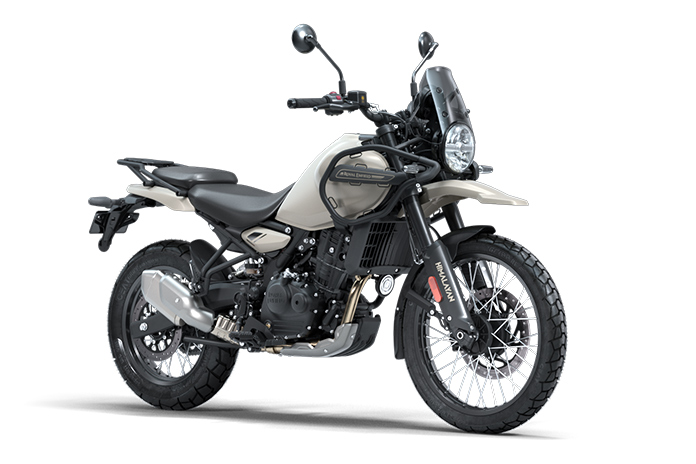
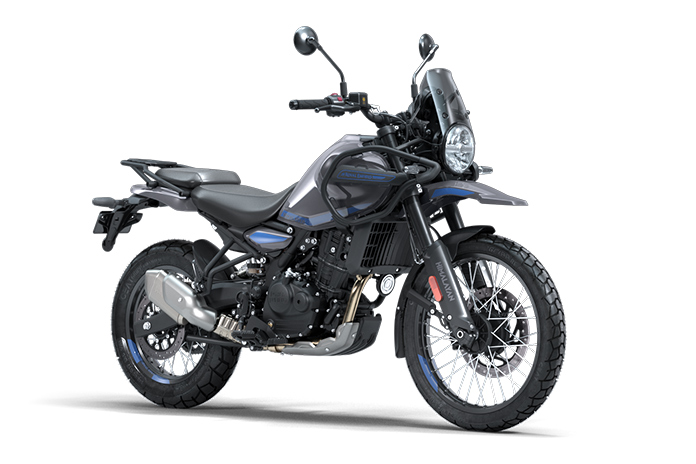
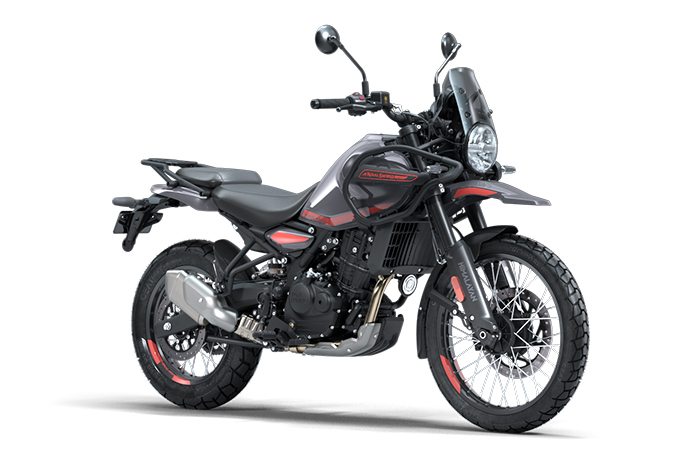
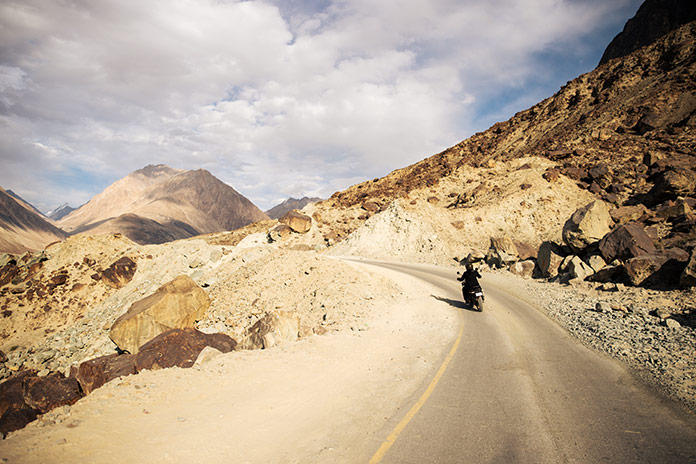
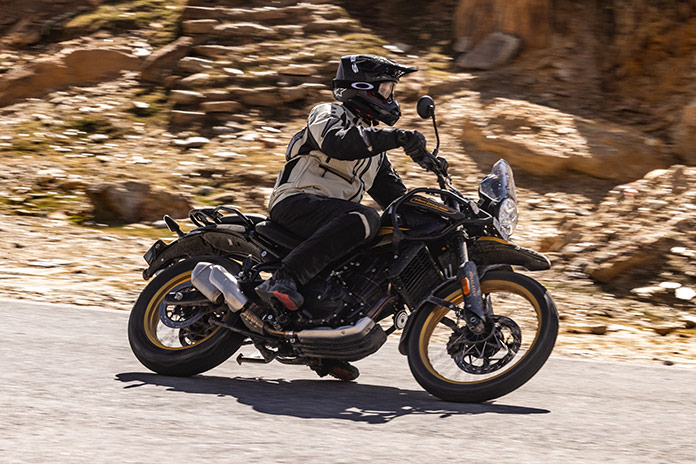
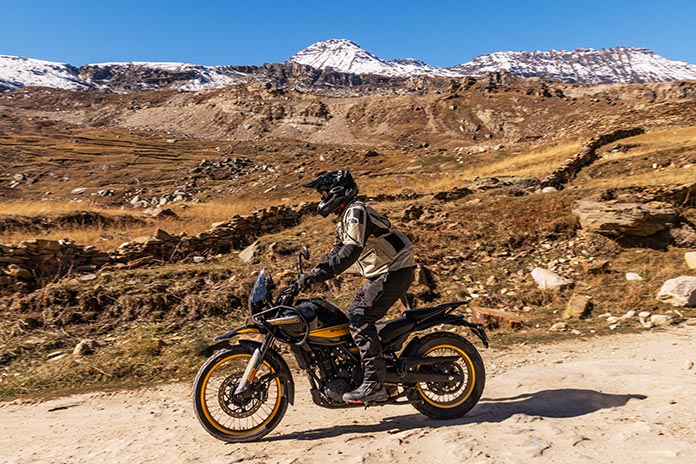
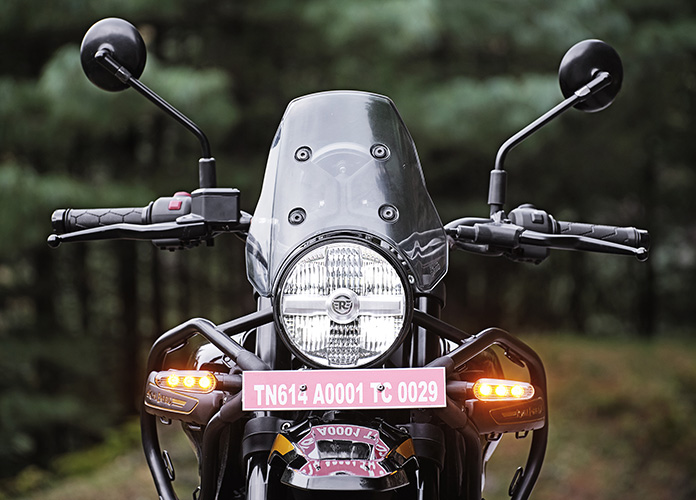
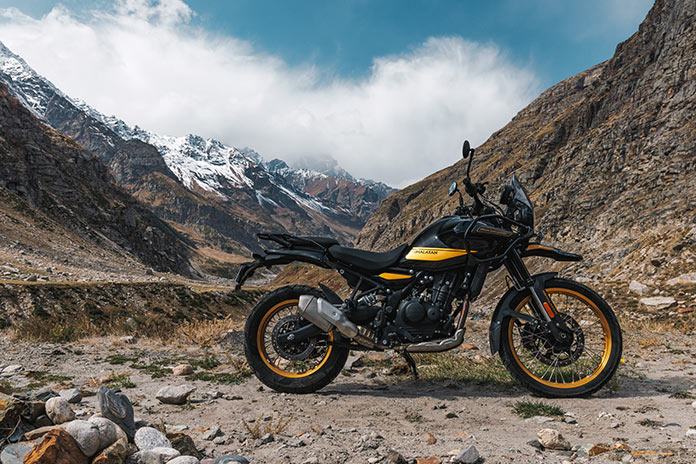
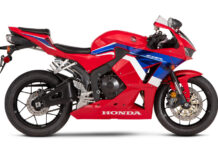


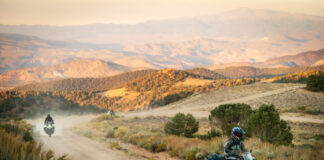

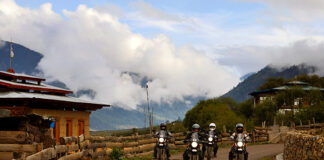

“If adventure bikes are the Swiss Army knives of the motorcycling world, then the light, versatile Himalayan resides comfortably in that pocket. ”
I’m not understanding that metaphor. Are Swiss Army knives pockets?
pocket knives
I’m looking for a replacement for my well-worn DRZ400S and this bike really interests me. My main objection would be the weight … 100 pounds heavier than my DRZ. Not sure why it’s so heavy??
The biggest reason is likely the steel frame which is a must-have for the Indian market. They prioritize strength and easy repairs over light weight.
Then there is the 4.5 gallon fuel tank, ABS, emission system that meets Euro V, steel crash bars, rear rack, windscreen, and a real rider and passenger seat instead of the dirt bike banana seat on the DR.
It’s nice. But I’m thinking that the price will probably be significantly higher than the old bike. New frame, all new water cooled DOHC engine, Showa inverted forks, bigger brakes, ABS, all that stuff costs money. Expect a $1000 price hike. Still not a bad price for everything you get, and there isn’t a lot of direct competition out there.